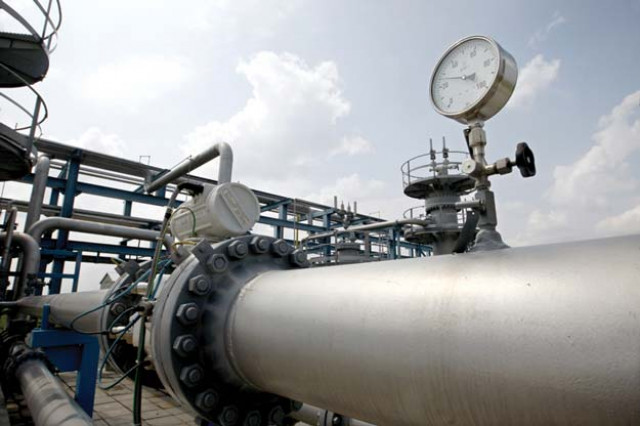Conflicts: APTMA irked again, this time by GIDC
Says additional cost comes during time of liquidity crunch.

Malik clarified that no new tax had been imposed on gas consumers as the bill for cess collection passed in parliament recently was already among the bills of consumers PHOTO: REUTERS
Aptma Sindh-Balochistan Region Chairman Tariq Saud said that the bill will increase the cost of doing business and overburden taxpayers.

Saud added that the textile industry is already facing a crisis because of the high cost of doing business and liquidity constraints. “Re-introduction of GIDC and its implications would be detrimental to the industry,” said Saud.
“Refunds worth Rs160 billion are already pending with the government and that is the reason behind the liquidity crunch. In such conditions, the sector is not in a position to pay GIDC,” he said in a statement issued on Tuesday.
He said instead of taking such punitive steps, the government should focus on facilitating the business and industrial community that would automatically generate more tax revenue, create jobs and enhance exports.
The APTMA chairman added that three provinces are producing 96% of the total natural gas produced in the country and consuming only 40%, whereas the rest is left as surplus. “We do not need any infrastructure, then why should we pay GIDC?”
The GIDC Bill 2015 would not only make textile exports uncompetitive, but would also result in flight of capital and unemployment.

He said textile exports registered a decline of 16% in March 2015 compared to the comparative period previous year. He added that even basic textile exports witnessed a decline of 10% during the first 10 months of the current fiscal year, despite the GSP Plus status.
Furthermore, around 30% capacity of the industry has shut down because of the liquidity crunch and energy constraints, he complained.
Published in The Express Tribune, May 27th, 2015.
Like Business on Facebook, follow @TribuneBiz on Twitter to stay informed and join in the conversation.



















COMMENTS
Comments are moderated and generally will be posted if they are on-topic and not abusive.
For more information, please see our Comments FAQ